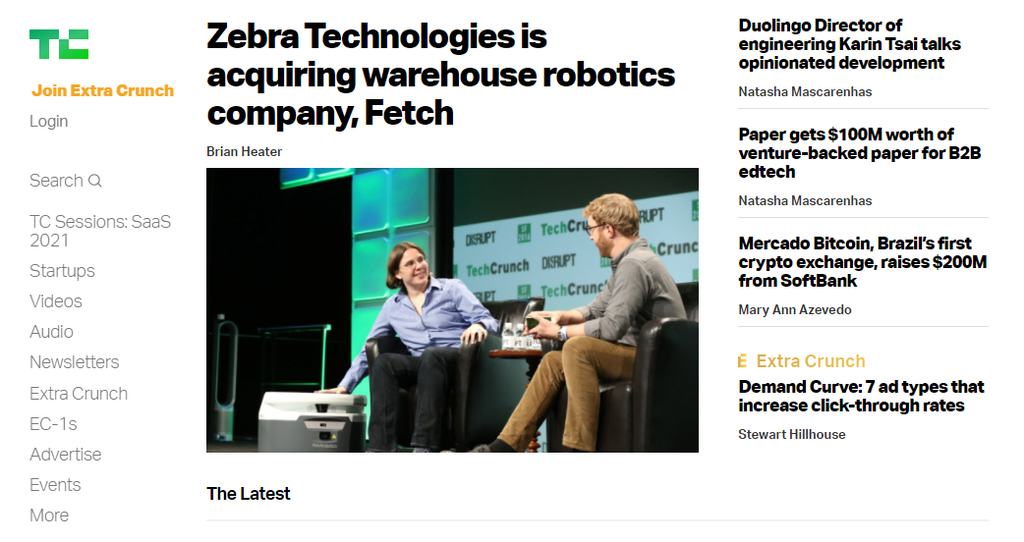Discover the Best tech blog for the current Trends and Advancements in Modern technology
Discover the Best tech blog for the current Trends and Advancements in Modern technology
Blog Article
How Blockchain Innovation Is Revolutionizing Information Safety
Blockchain innovation is basically changing the landscape of data security by presenting a decentralized framework that assures enhanced transparency and resilience. Unlike traditional systems, which depend on central information databases, blockchain disperses data across a network, reducing vulnerabilities and single factors of failure. The usage of sophisticated cryptographic strategies guarantees that information stays tamper-proof, cultivating trust amongst users and stakeholders. As sectors rapidly adapt to this innovation, questions arise concerning its wider impact and potential obstacles. What ramifications does this change hold for future data protection techniques and governing structures? The responses might stun you (Best tech blog).
The Fundamentals of Blockchain
Blockchain innovation, a cutting edge principle in digital information monitoring, fundamentally transforms how details is saved and protected. At its core, a blockchain is a dispersed journal that records purchases throughout a network of computers, guaranteeing transparency and immutability. The innovation operates a chain of blocks, each including a list of transactions. Once a block is filled, it is time-stamped and linked to the previous block, creating a chronological chain.
Key to understanding blockchain is the hashing process, which secures transaction data into an one-of-a-kind alphanumeric code. This cryptographic function guarantees that any modification in the purchase information causes a totally various hash, therefore safeguarding versus tampering. The consensus system, one more critical part, validates and confirms new purchases with a network of nodes, thereby removing the demand for a centralized authority.
Furthermore, blockchain's append-only structure makes certain that information, when added, can not be erased or changed. This particular guarantees a verifiable and permanent document of purchases, cultivating count on among individuals. Consequently, blockchain offers a robust structure for data integrity, providing markets a reliable technique for tracking and managing electronic info in a safe and secure, transparent way.
Decentralization and Safety And Security
Decentralization, a core principle of blockchain technology, substantially enhances data security by dispersing control across a network rather than relying on a single, central entity. By distributing data throughout many nodes, blockchain guarantees that also if one node is compromised, the entire network stays secure.

Each participant in the network has accessibility to the entire blockchain, permitting them to verify and investigate deals independently. Overall, decentralization is crucial in boosting information safety and security in blockchain networks.

Cryptographic Strategies
At the heart of blockchain technology, cryptographic methods play an essential duty in securing information, making sure both discretion and integrity. These techniques are foundational to the blockchain's ability to safely tape deals in a decentralized manner. Cryptography in blockchain utilizes a mix of symmetric and crooked formulas to secure data, making it easily accessible just to authorized events - Best tech blog. Public and personal crucial pairs are central to this procedure, enabling secure authentication and identity verification without exposing delicate information.
Hash features are another vital component, changing input data into a fixed-size string of characters, successfully creating a special digital finger print for every block. This ensures that any type of attempt to modify the information will result in an entirely different hash, hence preserving the immutability of the blockchain. Digital signatures validate the authenticity and honesty of transactions, supplying a layer of non-repudiation.
The decentralized nature of blockchain, incorporated with durable cryptographic strategies, gets rid of the need for intermediaries, minimizing potential vulnerabilities. As blockchain technology progresses, advancements in cryptography such as zero-knowledge evidence and homomorphic encryption proceed to boost safety procedures, even more fortifying data defense in this revolutionary electronic ledger system.
Use Situations Across Industries

In the medical care industry, blockchain makes certain the safe storage and sharing of individual records, advertising interoperability while protecting sensitive data from unapproved accessibility. This innovation empowers clients with control over their clinical history and assists in smooth control amongst doctor.
Supply chain monitoring benefits considerably from blockchain's unalterable ledger, which makes certain traceability and credibility of products from origin to customer. By improving openness, blockchain aids minimize problems such as counterfeiting and dishonest sourcing.
Furthermore, blockchain's decentralized nature is improving the energy sector by enabling peer-to-peer power trading, where customers can deal excess renewable power directly. This promotes an extra sustainable and efficient power ecological community.
In the world of intellectual residential property, blockchain gives a tamper-proof system for creators to sign up and protect their jobs, making certain rightful acknowledgment and reasonable compensation. These varied use instances underline blockchain's function as a crucial force in redefining information safety and security throughout industries.
Future of Information Protection
As we want to the future of information protection, blockchain modern technology is poised to play a crucial role in guarding digital info. With its decentralized and immutable qualities, blockchain supplies a robust structure for securing sensitive information against unauthorized accessibility and cyber dangers. This modern technology makes sure that as soon as information is recorded, it is virtually impossible to modify without discovery, thus offering a considerable advantage over traditional data storage space approaches.
The integration of blockchain with various other sophisticated innovations, such as expert system and the Net of Things (IoT), is anticipated to enhance information protection methods better. By leveraging smart agreements, organizations can automate and apply security methods, lowering human mistake and raising performance. Furthermore, blockchain's capacity to provide transparent and deducible purchases address will certainly strengthen depend on and liability in data management methods.
As governing landscapes evolve, blockchain's compliance-friendly nature will certainly end up being progressively pertinent. It can help companies satisfy rigid information protection laws, such as the General Information Protection Law (GDPR) and the California Customer Privacy Act (CCPA), by site providing verifiable records of information processing tasks. Ultimately, blockchain's distinct qualities setting it as a transformative device in the continuous quest to protect the digital world versus ever-evolving cyber hazards.
Verdict
Blockchain modern technology represents a paradigm shift in data safety by leveraging decentralization and cryptographic strategies to enhance openness, trust fund, and data honesty. Its capacity to remove single factors of failing and utilize consensus systems considerably decreases the risk of scams and cyberattacks. This cutting-edge framework not only encourages customers with higher control over their information but additionally aligns with regulatory conformity. As cyber hazards develop, blockchain becomes an essential tool for robust data protection throughout numerous sectors.
Blockchain technology is basically altering the landscape of information safety by introducing a decentralized framework that guarantees enhanced transparency and durability. Unlike standard systems, which depend on central information databases, blockchain distributes information throughout a network, decreasing susceptabilities and single factors of failing.Decentralization, a core principle of blockchain technology, significantly improves data security by dispersing control throughout a network instead than counting on a singular, central entity.At the heart of blockchain innovation, cryptographic methods play an essential duty in guarding data, ensuring both confidentiality and honesty.Blockchain modern technology represents a standard shift in data safety and security by leveraging decentralization and cryptographic methods to boost transparency, trust, and information stability.
Report this page